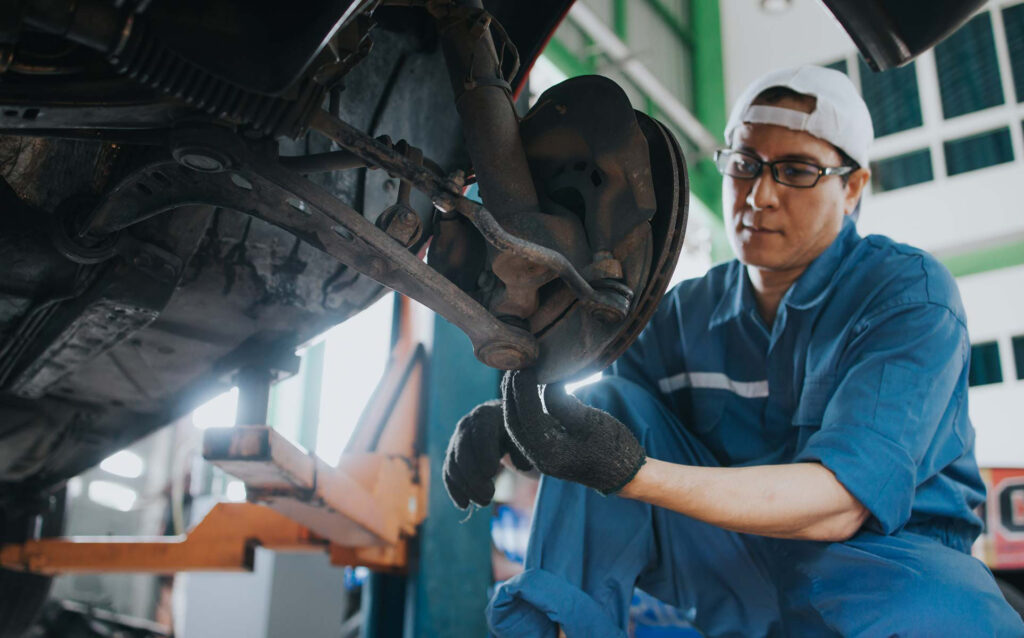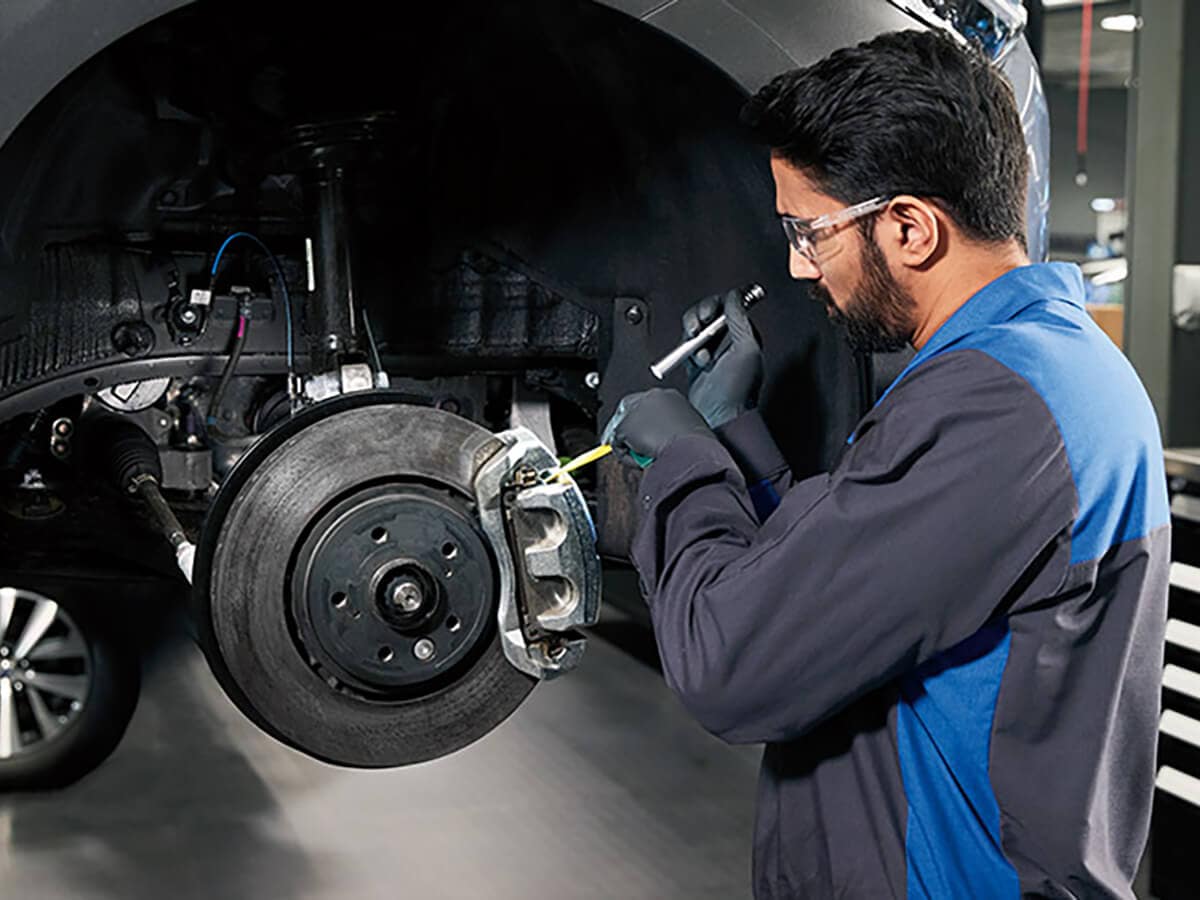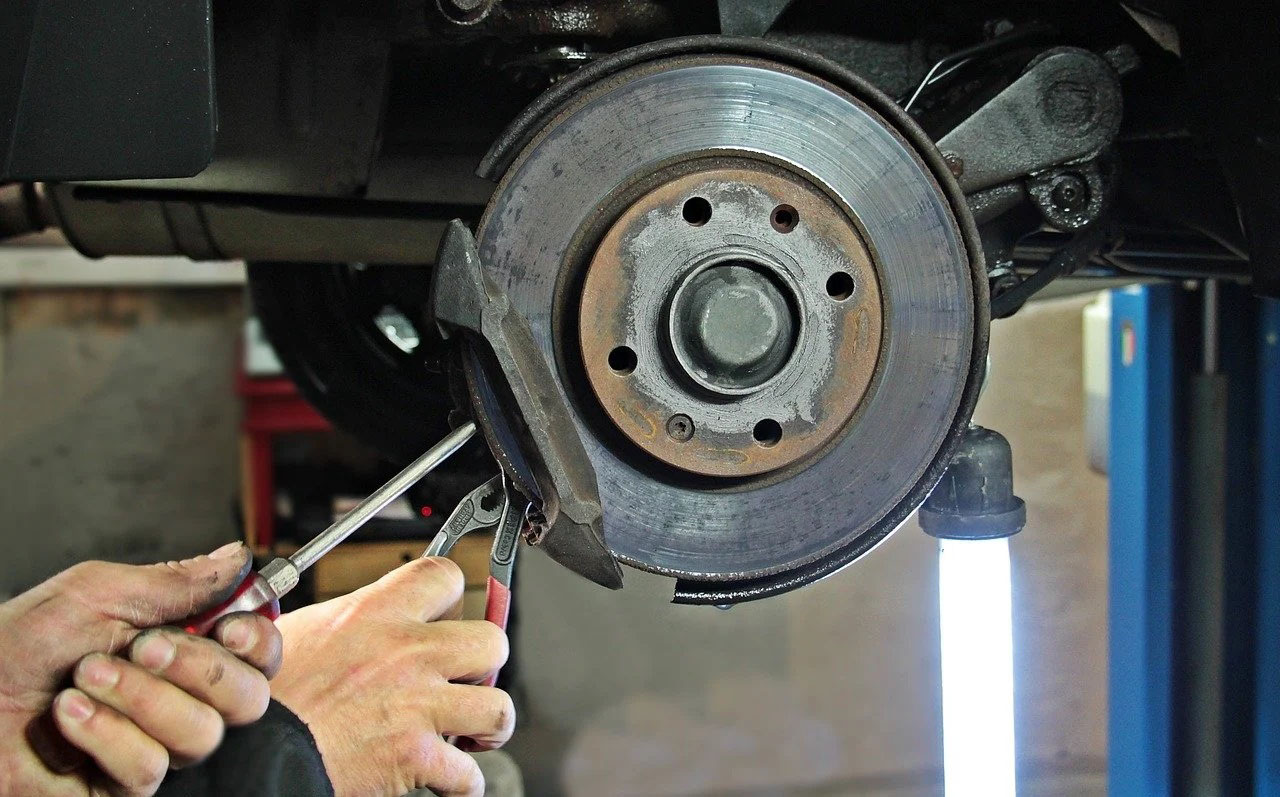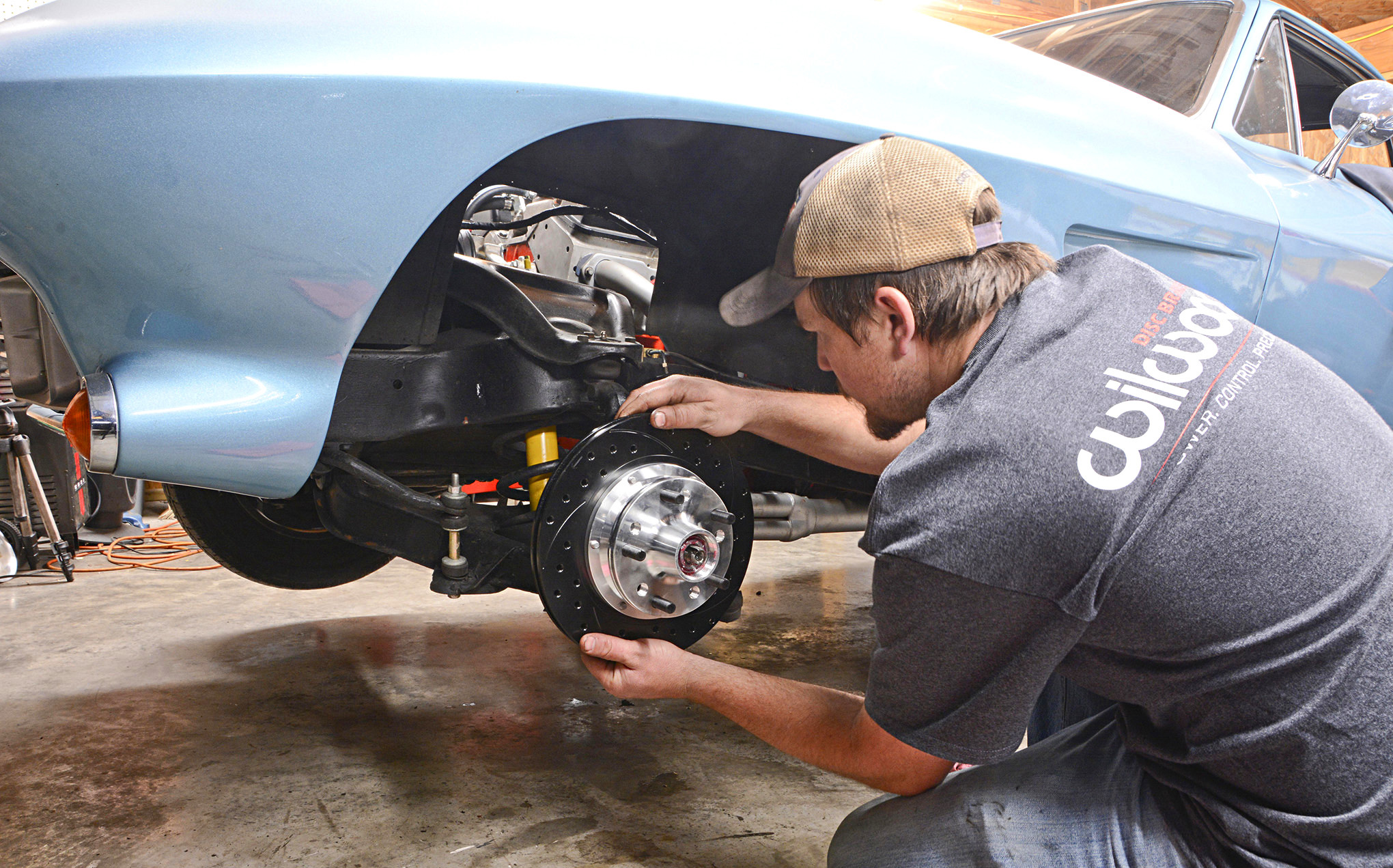Wondering if your car’s brakes are covered under warranty can be a common concern. Interestingly, brake warranties can vary greatly between different cars and manufacturers. This article will guide you through the ins and outs of brake warranty coverage details, including what usually falls under such protection.
Let’s get started!
Table of Contents
ToggleStandard Warranty Coverage for Brakes
When you buy a car, the manufacturer’s warranty often includes some brake parts. This usually covers defects in materials or workmanship but does not cover normal wear and tear like worn brake pads or damaged discs from use.
What is Typically Covered Under Manufacturer Warranties
Manufacturer warranties typically encompass defects in automobile components and craftsmanship. This indicates that if your brake system encounters issues due to inadequate manufacturing, the warranty might come to your aid.
Coverage may extend to various brake components such as pads, rotors, calipers, and more, although it ordinarily doesn’t account for typical wear and tear or accident induced damage.
Such warranties remain valid for a predetermined duration or number of miles driven. For instance, a newly purchased vehicle may come with a three-year or 36,000-mile warranty. Throughout this timeframe, if your brakes falter due to substandard production or material defects, the manufacturer will repair them at no expense or substitute the defective components free of charge.
It’s essential to conscientiously maintain your vehicle and adhere to the maintenance manual to ensure continuous coverage under this warranty.
Exclusions and Limitations for Brake Components
Car warranties cover many parts, but they often exclude brake pads and linings due to wear and tear. Your warranty might not cover components like the master cylinder or brake rotors if damage comes from misuse or lack of maintenance.
Companies see these parts as service items. This means they expect them to wear down over time from normal use.
Always check your car’s warranty details for specific coverage on brake components.
Even with a comprehensive car warranty, certain limits apply to braking system repairs. For example, if you drive aggressively or don’t follow regular maintenance schedules, your claim could be denied.
Warranties usually require that you keep up with upkeep, such as changing the brake fluid and inspecting brakes regularly to stay covered.
Types of Brake Warranties
Your car’s brakes might have different types of warranties to protect them. These include the one from the maker of your car, ones you can buy for extra time or coverage, and special promises for parts like brake pads that last as long as you own the car.
Manufacturer Warranty
Manufacturer warranties for cars often cover brakes. This warranty can last from 3 to 5 years or up to 36,000 to 60,000 miles, depending on the brand like Hyundai or Ford. It includes parts of the braking system such as brake pads, calipers, and discs.
But it does not cover normal wear and tear. If your brakes fail because they’re old or you use your car a lot in tough conditions, the warranty might not help.
You must follow the car’s maintenance guide for the warranty to work. Skipping brake checks can void this coverage. Also, using your vehicle in extreme sports or altering its parts without approval may cancel the warranty.
Always check what your specific agreement says about brakes to avoid surprises during repairs at an auto shop or dealership.
Extended Warranty or Service Contracts
Extended warranties or service contracts provide added coverage for your car surpassing the regular warranty. Consider them as a precaution for prospective repairs, including brake concerns, after the termination of the original warranty.
You invest more currently to economize on expenditures later if something encounters malfunction. These strategies significantly differ in their coverages and their price points. Some might restrict their coverage to significant parts such as the engine or drivetrain, while others extend to brakes and smaller components.
An extended warranty serves as your economical barrier against unforeseen repair expenses.
I previously purchased an extended warranty for my car and it saved me a substantial amount when I required new brake pads and rotors. The dealership managed all the administrative work and repairs were completed promptly, exempting me from any trouble.
This personal incident demonstrated the worth of having that extra insurance.
Lifetime Warranty for Brake Pads
Some shops offer a lifetime warranty for brake pads. This means once you buy brake pads from them, you won’t pay for new ones again. If the pads wear out, they replace them for free.
Yet, this deal doesn’t cover labor costs or other parts like brake discs and calipers. You might still need to pay for work done when they change the pads.
Before getting excited about this warranty, check what it includes. Some conditions might not be obvious at first. For example, if you drive a lot or use your car in tough conditions, your warranty may not last as long as you expect.
Always read the fine print and ask questions so you know what’s covered and what’s not before choosing brake pads with a lifetime guarantee.
Factors That Determine Brake Warranty Coverage
Several things affect if your brakes have warranty coverage. The kind of brake part, like pads or rotors, plays a big role. How you drive and take care of your car also matters. If you keep good records of car service, this can help too.
Type of Brake Component (Pads, Rotors, Calipers)
Brake pads, rotors, and calipers are key parts of your car’s braking system. Each plays a vital role. Pads press against the rotors to slow your car down. Rotors spin along with the wheels until the pads make contact to stop them.
Calipers hold the pads and press them into the rotors when you brake. Over time, these components wear out from use.
Your vehicle usage and how you drive affect these parts differently. Driving hard puts more stress on brakes, causing faster wear. Keeping track of maintenance is crucial for warranty claims on brake repairs.
Always check your warranty terms for what’s covered and what’s not on these brake components – like discs turning or pad replacement due to normal wear may not be covered by warranties.
Vehicle Usage and Driving Habits
Driving frequently or in demanding conditions may lead to premature brake wear. This could be due to frequent stop-and-go traffic, uneven terrains, or transporting heavy loads. Such practices exert additional stress on brake parts like pads and rotors.
In essence, if you often drive in these strenuous conditions, you may have to replace brakes more frequently than those who drive less or in simpler conditions.
Your driving patterns substantially affect the lifespan of your car’s brakes.
If you meticulously maintain your car’s records and use it considerately, your warranty could potentially cover more concerning brake repairs. For instance, abstaining from overloading your car and avoiding severe braking can prolong the useful life of components like calipers.
Keeping a detailed log of each service visit signifies that you maintain your car. This might facilitate warranty-covered repairs if necessary.
Maintenance Records and Conditions
Keeping good records of your car’s brake maintenance is key. These records show every service visit, including when you changed the brake pads or worked on the calipers. If there’s ever a question about your warranty, these documents can help prove that you’ve taken proper care of the brakes.
Think of maintenance logs as a diary for your car that tracks its health over time.
Your driving habits also play a big role in how well your brakes hold up. If you often drive in heavy traffic or on rough roads, your brakes might wear out faster than someone who drives less or only on smooth streets.
That’s why it’s smart to keep an eye on how you use your vehicle and address any brake issues right away. Fixing problems early can stop bigger issues later and might even keep your warranty valid.
How to Check Your Brake Warranty
To find out if your brakes are under warranty, look at your car’s warranty agreement. You can also talk to the dealership or reach out to the maker of your car. If you got a third-party warranty, contact that provider.
This way, you’ll know what coverage you have for your brakes. Keep reading to learn more about protecting your ride and ensuring safe stops on the road.
Reviewing Your Vehicle Warranty Agreement
Look at your vehicle warranty agreement to see if brakes are covered. This paper tells you what the car’s maker or dealership promises to fix, including parts of the brake system like pads, calipers, and rotors.
Some warranties might only help with certain brake parts and for a set time. Others offer more help but might ask for regular maintenance records.
You should also check any service contracts or extended warranties you bought. These can give extra protection after the maker’s warranty ends. They can even cover brake repairs that weren’t included before.
For my first car, I had to look through all these papers to understand what was covered and what wasn’t. It helped me talk confidently with the dealership about fixing my brakes under warranty.
Contacting the Dealership or Manufacturer
To check if your brakes are under warranty, call the car dealer or vehicle maker. You need to give them your vehicle’s details, like the make, model, and year. They will ask for the VIN (Vehicle Identification Number) too.
This number is key because it tells them exactly which car you have.
You can also visit the dealership where you bought your car. Bring all your documents with you. These include your sales agreement and any service records. The staff there can help you understand what parts of your brakes might still be under warranty.
They’ll tell you about any costs that could come up if something needs fixing or replacing.
Third-Party Warranty Providers
You can also get brake warranty from companies outside the car maker. These third-party providers offer different types of coverage for your brakes. They might offer plans that cover more than what the original warranty does.
This includes parts like brake pads, calipers, and lines not usually covered by standard warranties.
From my own experience, I found a third-party provider that offered a great deal on extended coverage for my car’s braking system. This plan included things like wear and tear on brake pads and damage to rotors, which was not part of the car manufacturer’s warranty.
It gave me peace of mind knowing I could get these parts fixed without a huge bill. Always check what each plan covers and compare it to others to find the best one for your needs.
Conclusion
Brakes might or might not have warranty coverage, depending on a few things. It depends on the brake parts, how you use your car, and if you keep up with car care. Always check your vehicle’s warranty deal to know for sure.
Talk to the dealership or maker if you’re not sure. They can help. Know what’s covered can save you money and trouble down the road.
FAQs
What parts of the braking system are typically covered under a car warranty?
A car warranty often covers major components of the braking system like brake calipers, brake lines, and disc brakes. However, it may not cover consumables such as brake linings or issues caused by wear and tear.
How can I check if my brakes are under warranty?
To determine if your brakes are under warranty, you need to review your automotive coverage details provided by your insurance company or consult with them directly. Remember to consider factors like mileage and whether you have a used car.
Are there limitations on warranties for brake repairs?
Yes, there could be limitations based on certain conditions such as mileage limits or restrictions related to regular maintenance requirements.
Does auto insurance offer any protection for brake repairs?
Auto insurance typically doesn’t cover routine maintenance including brakes unless they were damaged in an accident covered by the policy.
Do hybrid vehicles like Toyota have different warranties for their braking systems?
Hybrid vehicles might have different warranties due to their unique regenerative braking systems that use energy resistance for heat dissipation which reduces wear on traditional brake components.
Is it possible that some parts of the braking system aren’t covered under warranty?
It’s possible that consumable items like brake dust from worn-out ceramic pads or damage from improper use leading to problems such as unsprung weight issues might not be covered.




